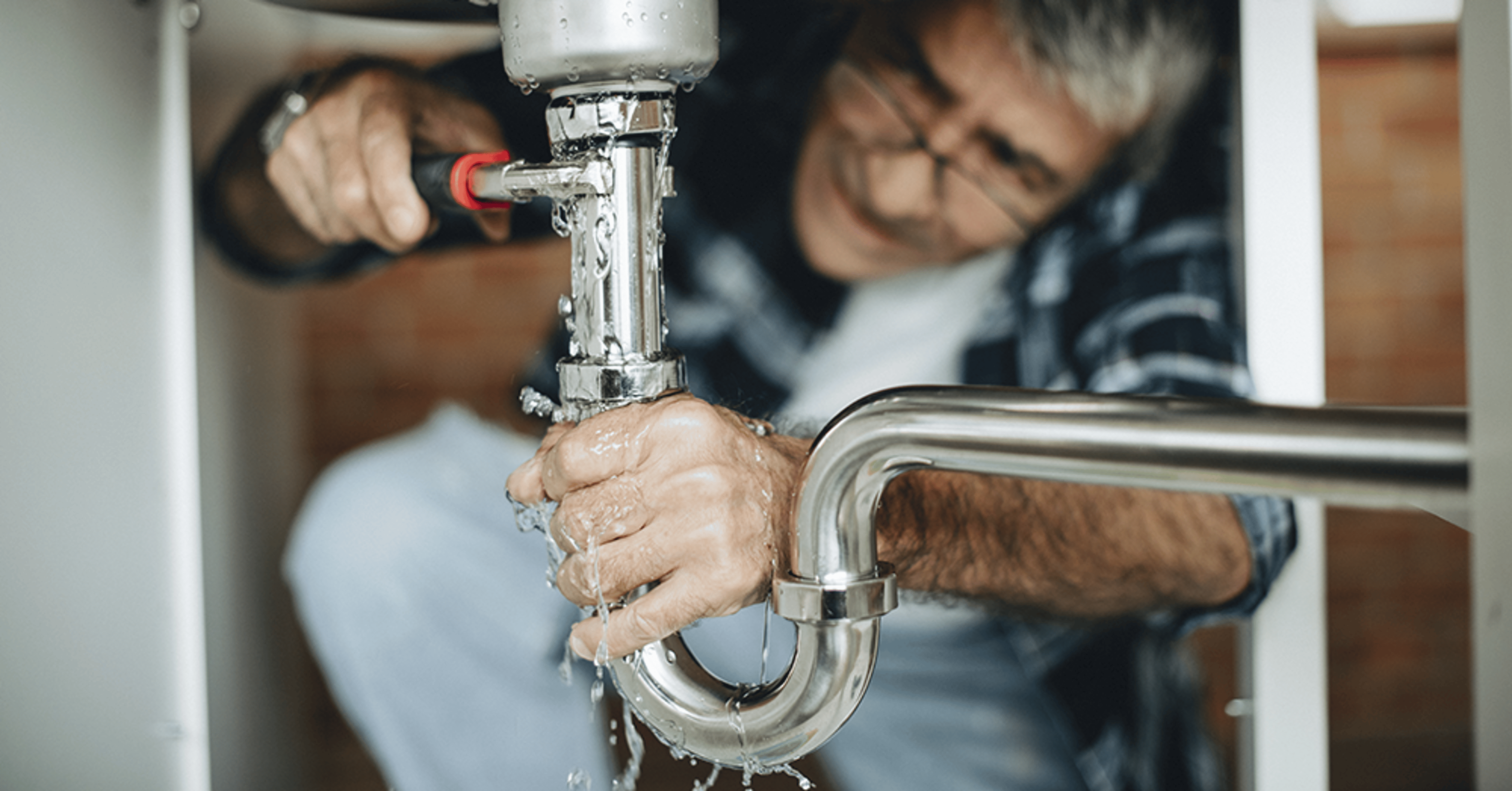6 Plumbing Tips for New Homeowners
You’ve just closed on your home (congrats!) and you’re ready to move all your belongings into your new space. We understand how exciting it can be to finally have your own place. No more renting, roommates, or parents! Regardless of the situation, you...

You’ve just closed on your home (congrats!) and you’re ready to move all your belongings into your new space. We understand how exciting it can be to finally have your own place. No more renting, roommates, or parents! Regardless of the situation, you’re now responsible for the upkeep of your new digs. This means responsibilities – heating and cooling maintenance, landscaping, shoveling the snow in the winter, sealing your windows, etc.
One thing you shouldn’t forget to do is properly maintain your home’s plumbing. Understandably, scheduling a plumbing inspection, cleaning shower drains, and locating your water shut off valve aren’t the most exciting tasks when you’ve just moved into a new home. However, they’re incredibly important. This is why we’ve compiled a list of six plumbing tips for new homeowners to keep in mind.
Tip 1. Find your water shut off valve
We can’t stress enough how important it is to locate this valve! If you ever experience a burst pipe in your home, you will need to know how to shut the water off before significant (and expensive) damage is done. Typically, the water shut off valve is found in the basement or under your home in the crawl space area. If you have trouble locating the valve, or if you aren’t sure how to use it, a professional plumber will be able to help you.
Tip 2. Keep your shower drains clean
A lot of hair and soap gets washed down your shower drains each day (gross, right?). To prevent a clog, you can set up a catch-all cover for the drain. If you have noticed that the shower is draining slowly after moving in, do NOT use a store-bought “clog remover” to take care of the problem. There are harsh chemicals in these products that can do some serious damage to your home’s plumbing lines. Instead, contact a professional plumber to assist you.
Tip 3. Be mindful of what you’re flushing
Only toilet paper and human waste should be flushed down a toilet. Do not flush cotton balls, diapers, feminine hygiene products, paper towels, hair, cigarettes, baby wipes, dental floss, kitty litter, chewing gum, medications...get the point? These items have the potential to cause a serious and damaging clog.
Tip 4. Store garden hoses in the winter
Once the weather turns cold, detach your garden hose and store it until spring. If you choose to leave the hose outside in freezing temperatures, water trapped in the hose can freeze and expand. This may cause the hose to crack and you won’t know about it until the next time you try to use it in warm weather.
Additionally, be sure to drain the outdoor faucet or “spigot.” Failure to do so could lead to frozen water in the faucet and pressure being exerted on the pipes inside your home. This could cause a pipe in your walls to burst once the pressure becomes too much.
Tip 5. Know emergency numbers
Know who to call in case there’s a plumbing emergency in your home (and if you aren’t enrolled in our In-Home Plumbing Protection Plan). Not having to search through a phonebook or online could save you a lot of serious damage when you have an emergency such as a clogged and overflowing toilet or a burst pipe.
Tip 6. Schedule a plumbing inspection
Don’t forget to schedule an inspection with an expert plumber. He or she will inspect your home’s lines, drains, sinks, showers, tubs, toilets, and so on to be sure everything is in working order. If a problem is discovered, the plumber will be able to either take care of the problem on the spot or schedule another time to come to your home and address the issue, as well as any others that may have been discovered during the inspection.
Bonus tip – enroll in protection for your home’s plumbing
At American Water Resources, we offer an affordable In-Home Plumbing Emergency Program which covers a variety of plumbing repairs, such as broken water pipes, clogged drains, burst water pipe joints, clogged sinks, blocked or overflowing toilets, leaking water shut off valves, and more. When you’re enrolled in this plan, and have a covered problem, just call us and we’ll find a local, insured contractor within our network within 24 hours to assist you.